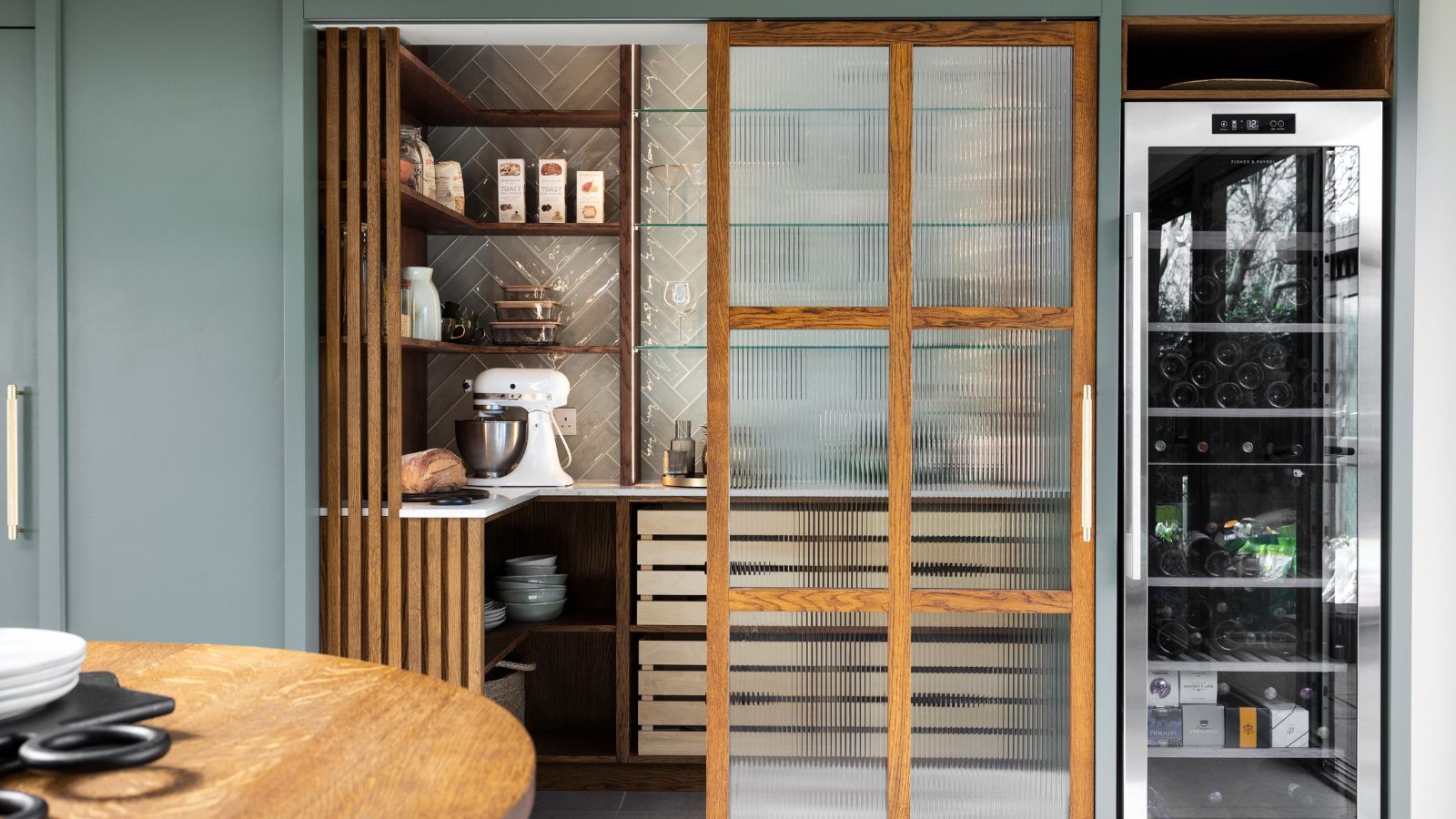
There’s nothing more satisfying than a well-stocked pantry, but knowing when – and what – to purge from yours is essential. Holding onto items for longer than you should can pose health risks and leads to food waste, whilst packed shelves make it hard to see what you’ve got and when it will expire.
No one likes throwing things away unnecessarily, especially food, so we’ve quizzed our home organizing experts on the key eight things we should never keep a hold of in our pantries and why. There’s a few non-perishables on the list, too that might surprise you.
Get rid of these items from your pantry right now and our experts say you’ll find organizing a pantry much easier in the long run.
1. Anything that’s out-of-date
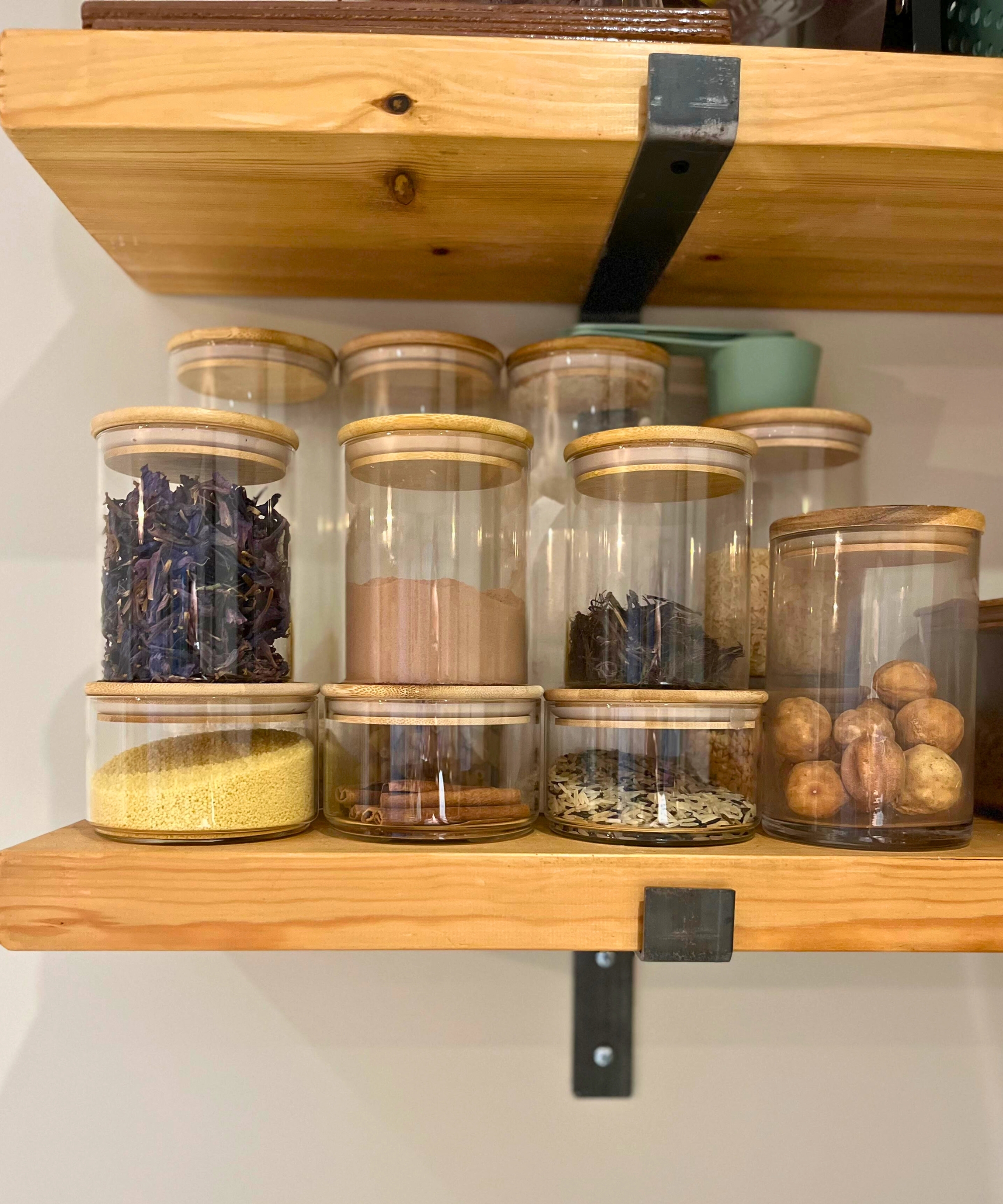
You might think you’re on top of your pantry staples, but with such long and varied shelf-lives, it’s hard to keep track. ‘Expired food isn’t just wasting space, it can also be a health risk’, warns professional organizer Meaghan Kessman.
Think of decluttering a pantry as an audit of sorts, and check the dates on every item. 'If it’s past its prime, it’s time to let it go. Going forwards, group items by category and use the ‘first in, first out’ food storage rule’. For efficiency, line shelves with the OXO plastic shelf riser, available at Target; place older items on top and newer ones underneath – you can use the same tactic when organizing a refrigerator, too.
When checking food items of any kind, be sure to look out for any obvious signs of spoilage; bulging or dented tins, discoloration, or funny smells. If you notice anything ‘off’, throw the item away, regardless of its expiry date.
2. Food you’re never going to eat
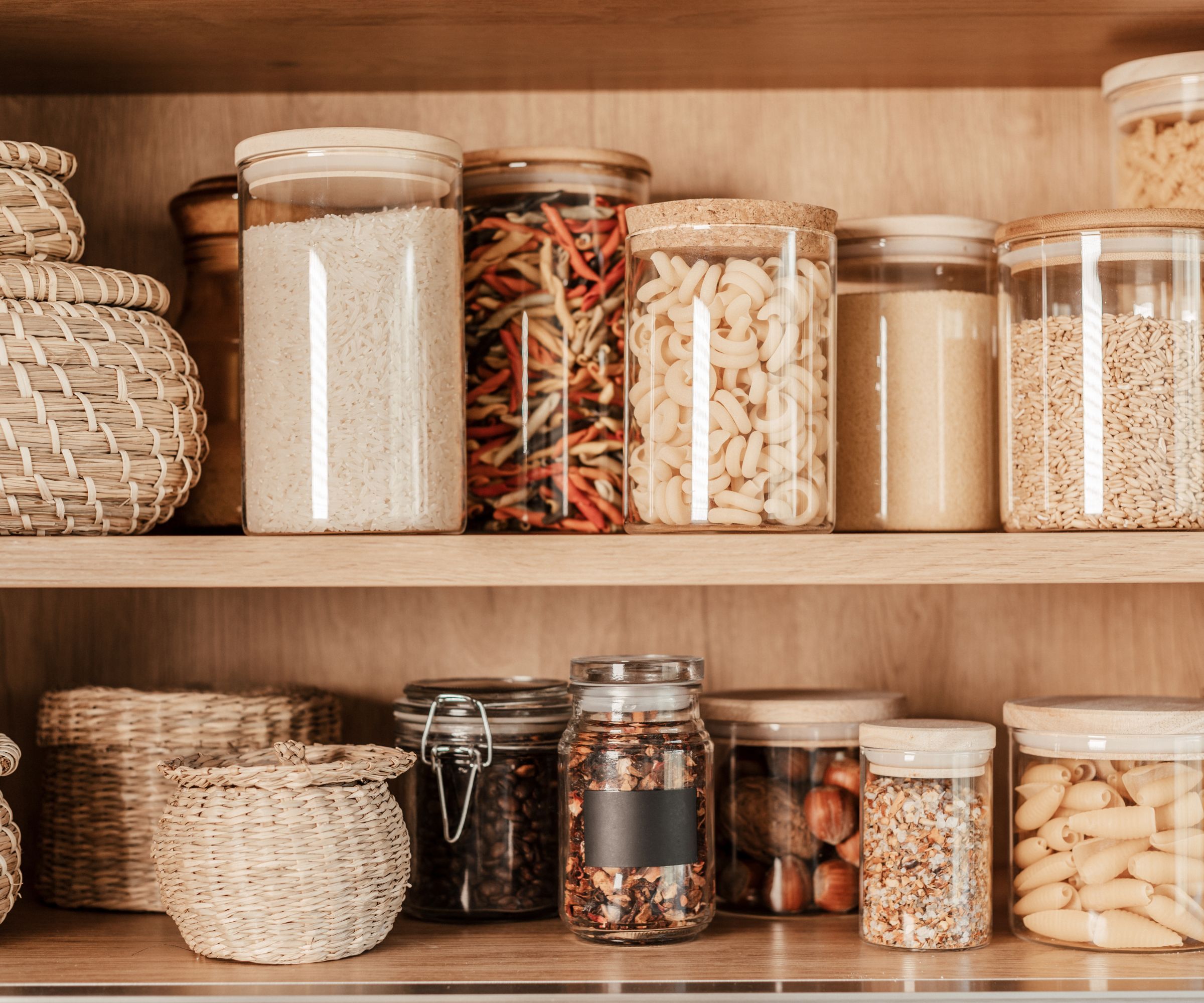
It’s true that some pantry shelf staples (those that are sealed in jars, cans and bottles) are still safe to eat past their expiry date, but that’s not a reason to leave them sitting there. If you can’t see yourself ever using it, get rid. We’d advise six months as a cut-off point.
Design expertise in your inbox – from inspiring decorating ideas and beautiful celebrity homes to practical gardening advice and shopping round-ups.
Professional organizer Lauren Saltman, founder of Living. Simplified., says ‘If they’re within date and the packaging isn’t damaged, consider donating them to a local food bank rather than throwing them away, so someone else can enjoy them’.
Apply the same logic when storing and organizing kitchen appliances in your pantry. If you haven’t used them – and you’re unlikely to ever use them – get rid.
3. Unsealed packets and opened boxes
We’re all guilty of opening a cereal box or a packet of biscuits then shoving it back into the pantry unsealed, but it’s really not a good idea. Not only are you risking indoor pests, but you’ll likely have to throw them away a lot sooner than you would otherwise.
‘Leaving dried goods unsealed (such as pasta, rice and grains, for example) allows moisture to get in, which can affect quality and efficiency over time’, says professional organizer Heather Aiello, founder of The Organized You.
‘The same goes for active ingredients such as flour, baking soda and yeast. In general they last at room temperature for around eight months to a year, but after that they lose their effectiveness, which can result in some disappointing bakes! If you’re unsure how long you’ve had them, add a little bit of water – if they don’t fizz or bubble, they need replacing’.
We’d recommend decanting your dried goods into sealed glass jars as soon as you open the packet, or use these Farberware plastic bag clips, from Wayfair, to keep items fresh.
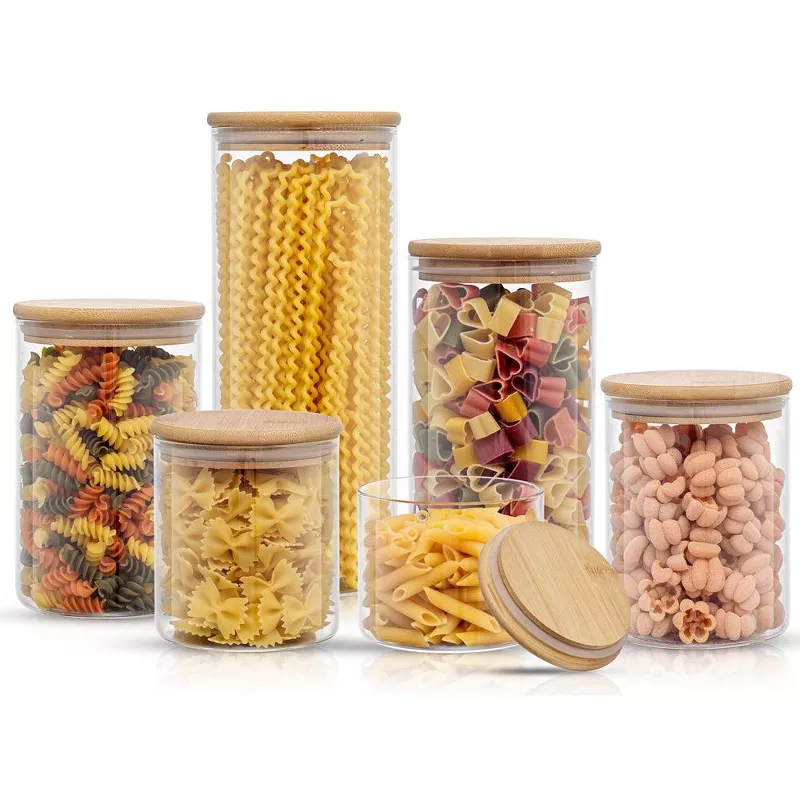
These cannisters offer style and storage in abundance. Air-tight bamboo lids (with BPA-free silicone seals) keep food fresh, while the durable glass jars can withstand the dishwasher –one less chore for you! Six sizes include: 5.5 oz (3.53” tall), 21.5 oz (4.54” tall), 28.5 oz (5.34” tall), 31.5 oz (6.27” tall), 39.5 oz (7.75” tall) and 54 oz (10” tall).
4. Bulk-buys and duplicates
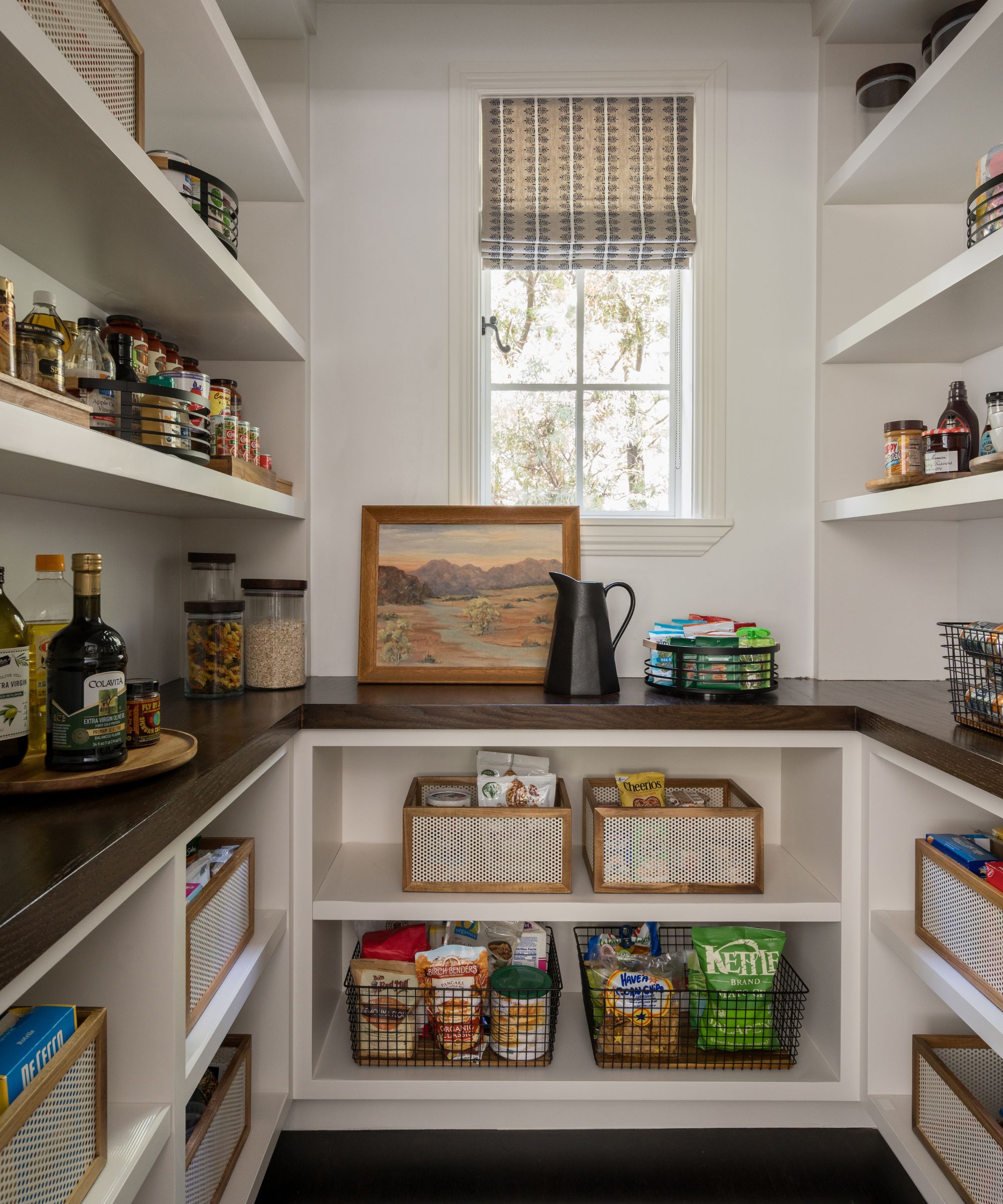
A neatly organized and uncluttered pantry with easy visibility
The pantry is a sensible place to store your back-stock, but knowing how to organize your home after bulk buying groceries is essential if you want to keep track of what you have. If you’ve overbought and the expiry dates are fast approaching, don’t leave it to spoil – donate it, instead. Tina Priestly, home refresh expert and CEO of Ready, Set, REFRESH says:
‘If you’re finding several of the same item that’s been half-used or opened, combine them into airtight containers and label them with expiration dates. It’s a great way to reduce pantry clutter and makes staying organized easier in the future’.
Michelle Urban, professional home organizer and founder of The Organized House agrees, adding, ‘Mounting a Ubrands Contempo magnetic dry erase board, available at Target, on your fridge or a digital spreadsheet of what you have on hand can revolutionize how you shop and use your supplies. Update it as you deplete items and after each bulk purchase. This way, you'll always know what you have, avoiding unnecessary purchases and ensuring you never run out of the essentials.'
5. Any herbs and spices that have lost their scent
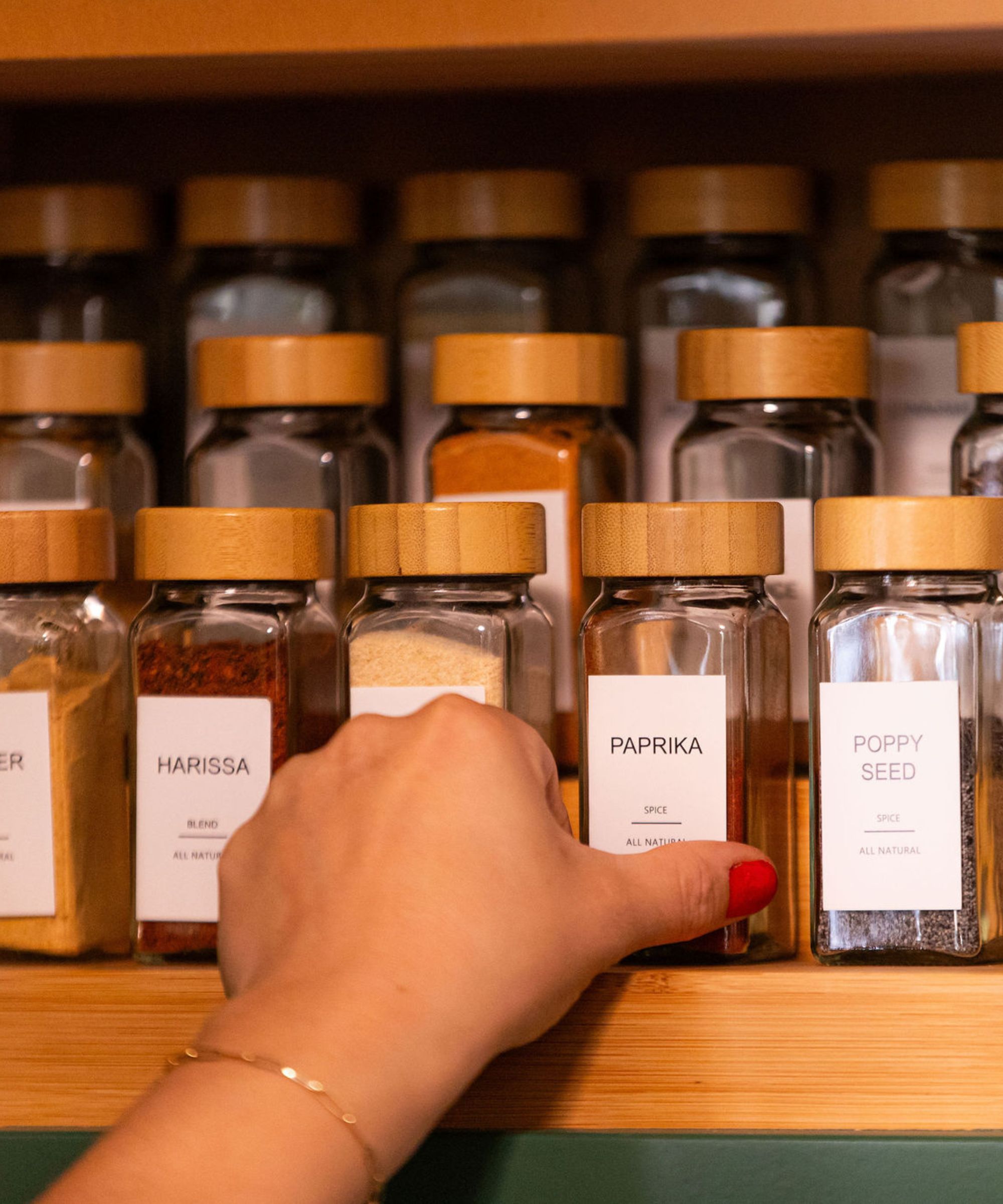
Herbs and spices stored in air tight containers retain their smell the longest
‘If you can’t remember the last time you used a spice, it’s probably lost its magic. Do a quick sniff test – if it doesn’t smell strong anymore, toss it’, advises Meaghan.
‘Organizing your spices properly can help them to last longer. Label them with the date you opened then and store somewhere dark away from heat sources. Decant into clear glass jars and use a drawer organizer or spice rack for easy access.
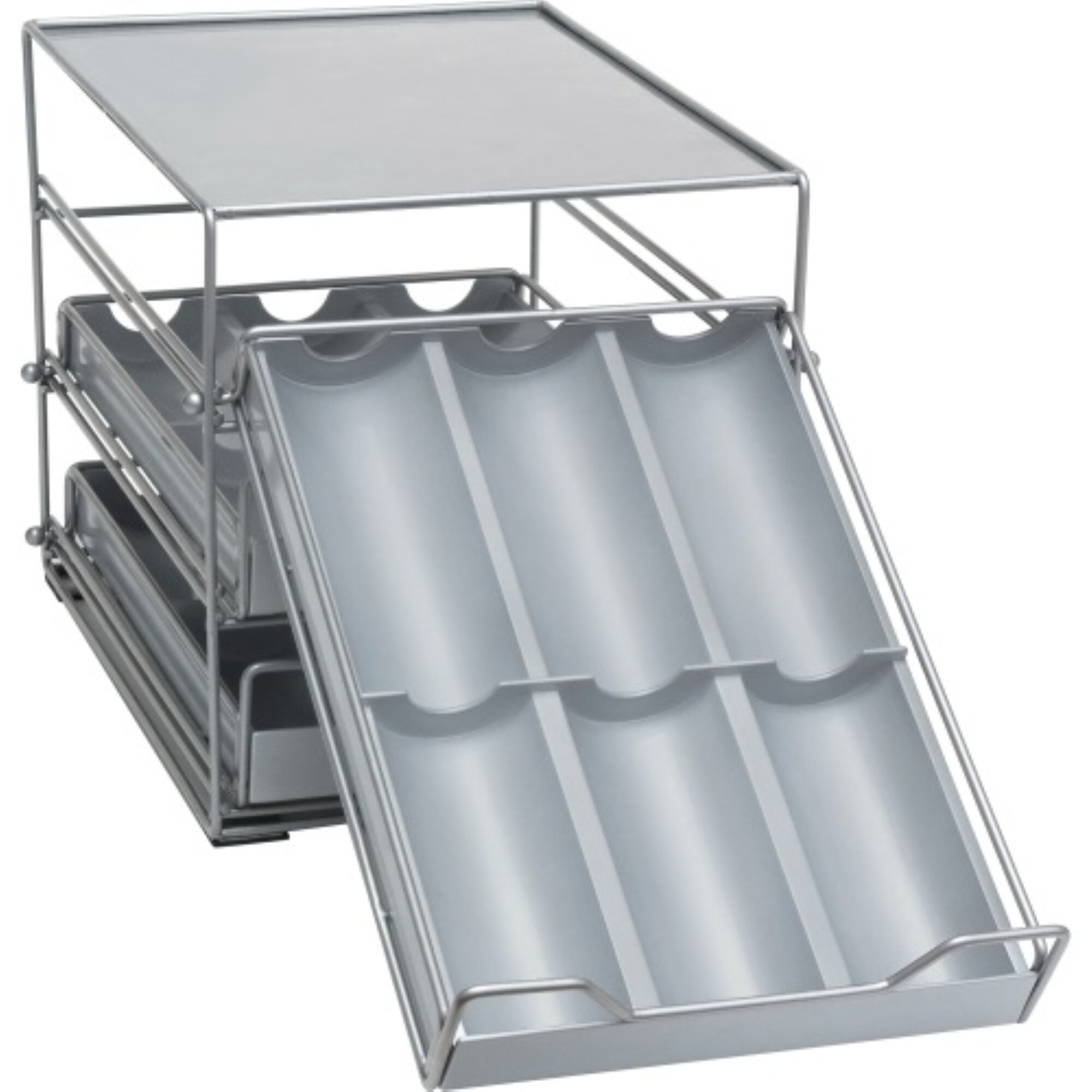
This cleverly-designed spice rack features three pull-out shelves that can be tilted down for easy access. There's slots for up to 18 jars (measuring 4.25") as well as extra surface space on top. It's freestanding and comes fully assembled, so you can pop it straight into your kitchen cabinet for easy organization.
6. Unhelpful organizers
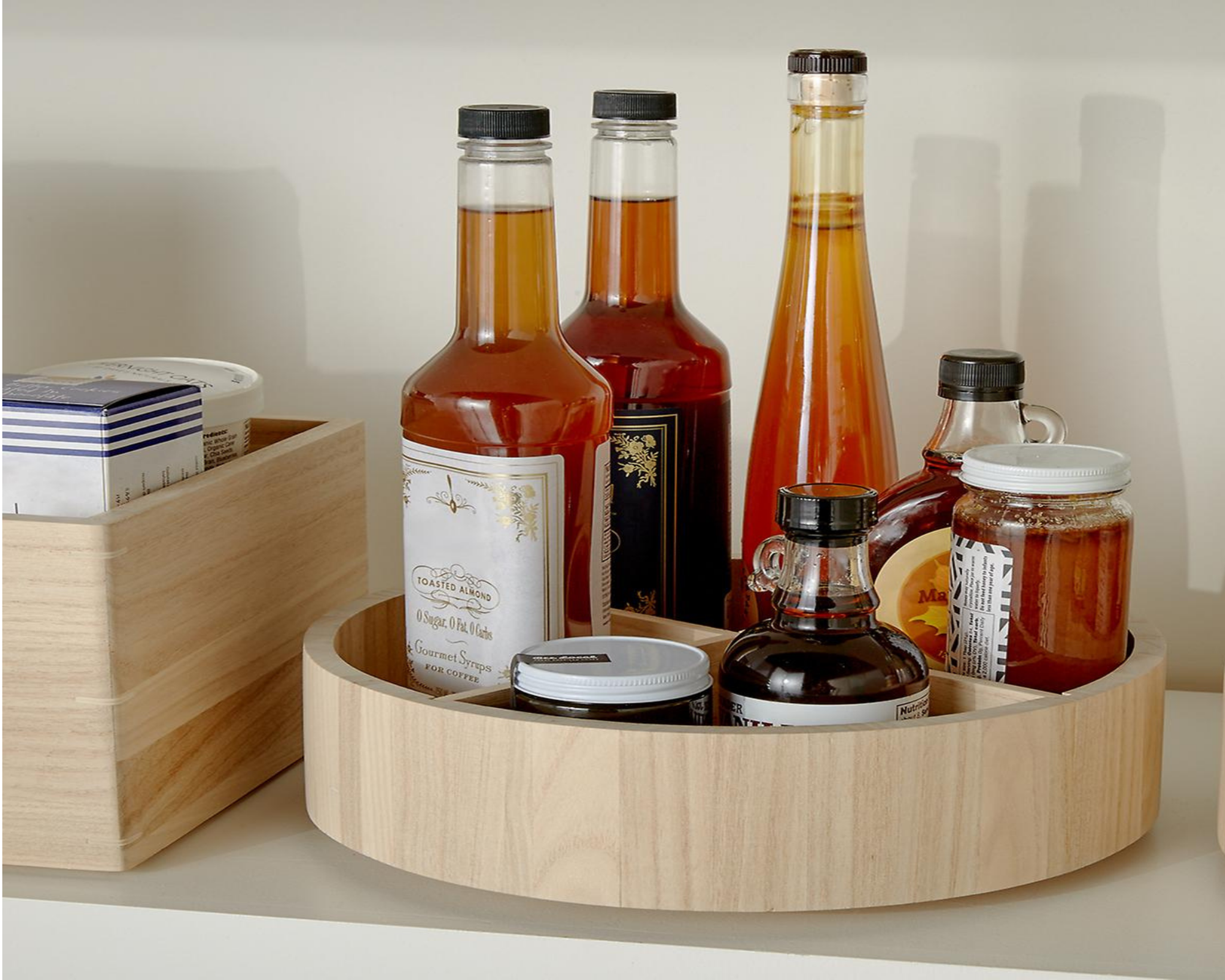
Turntables are a brilliantly effective pantry organizer and worth keeping as you can see and access what you needed without having to remove everything in front
Space-boosting pantry organizers are designed to make life easier, but if yours aren’t working for you, it’s time to re-evaluate.
'All too often we buy storage that isn’t necessary, or doesn’t do the job we want it to. Take the time to assess which bins and baskets, risers and turntables, shelf dividers and pull-out racks are helping to keep your pantry organized, and remove the rest. That’s not to say get rid of them altogether; see if they can be utilized elsewhere in the home, such as for organizing under the kitchen sink, for example’, says Lauren.
7. Old or discoloured tupperware
It’s not just food and drink that needs attention – Tupperware comes with a shelf life, too. If you haven’t pulled your collection out into the light for a while, now’s the time to do it. As a general rule they should last for around five years, but if yours are looking a little worse for wear, you’ll need to get rid. Not just for aesthetic reasons, but for health reasons.
Expert in home organization Julie Peak, founder of The Precise Place, says, ‘When organizing Tupperware, obvious signs to look out for include stains, warping, or cracks. At this point, storing or reheating food in them is a no go – you run the risk of harmful chemicals being released into your food.
'Switching to a smaller set of glass jars or BPA-free containers [we like the stackable Rubbermaid Brilliance Food Storage Containers, available at Amazon, and with 4.7 stars, other customers rate them, too] is safer, more environmentally friendly and saves on shelf space.'
8. Trash
From discarded wrappers and bits of tin foil to crumbs and stale coffee granules, trash builds up quickly on pantry shelves. Whilst we regularly clean our kitchens, it’s important you pest-proof a pantry by cleaning it just as often. ‘I find it helpful to position a trash and recycling bin nearby so I can dispose of items straight away, but you could also schedule regular clear outs every week or so,’ says Meaghan.
Any items that aren’t quite trash, but don’t deserve a prime pantry position (think take-out menus, old dish towels, reusable bags in their hundreds) should be removed and reassigned to a home elsewhere.
Clearing out just these eight items will make a huge difference to your pantry now, both in terms of practicality and how nice it looks. But understanding the reasons why your pantry looks cluttered – and taking the necessary steps to change it – is important if you want to maintain a neat and tidy space in the long run.

For 10 years, Tara King worked as a Content Editor in the magazine industry, before leaving to become freelance, covering interior design, wellbeing, craft and homemaking. As well as writing for Ideal Home, Style at Home, Country Homes & Interiors, Tara’s keen eye for styling combined with a passion for creating a happy – and functional – family home has led to a series of organization and cleaning features for H&G.
